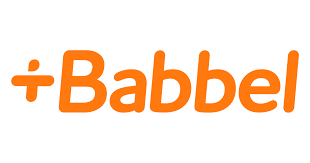Canada’s two official languages

English and French are Canada’s two official languages. Canadian English is a unique blend of American and British influences, while there are various French dialects in Canada that share certain features, such as anglicisms, that distinguish them from European French.
58 % of people in Canada speak English as a first language and 22% of Canadians speak French as a first language. About 18% of Canadians speak a language other than English or French as their first language. At home, 88% of Canadians speak English.
French is primarily spoken in the provinces of Quebec and New Brunswick. 69% of Canadians cannot speak French, and 64% of Quebecois cannot speak English.
English and French are Canada’s two official languages at a federal government level, and the courts and all federal legislation in Canada is enacted bilingually. New Brunswick is the only Canadian province that has English and French as its equally used official languages. Quebec is the only province whose sole official language is French, although legislation and court proceedings in Quebec can be enacted in French or English.
Language Assessments
When applying for a work or study permit, or residency in Canada, you may be required to submit proof of language proficiency. This means you must take a language assessment test from a Citizenship and Immigration Canada (CIC) designated agency.
Fluent language skills are essential for integration and employment in Canada, therefore your language test results help immigration officers determine if you have sufficient English or French language abilities to integrate into the Canadian society and workforce.
CIC designated language assessment agencies include IELTS (English), CELPIP (English), and TEF (French).
Accepted tests from these organizations include IELT’s General Training test and CELPIP’s CELPIP-G Test. You must submit results from TEF’s compréhension écrite, compréhension orale, expression écrite and expression orale tests as proof of French language proficiency. These tests are considered the only conclusive proof, in respect of immigration, of English and French language proficiency. These tests may be taken online or at a test center in person.
You are responsible for all language assessment costs. Assessment fees vary between $160 and $250 CAD.
To enroll in a language assessment test, contact IELTS, CELPIP or TEF to find out when and where you can take a test. Then, download and complete an application form and send it to the appropriate testing body, along with a copy of your passport, and payment. You may also be required to submit passport photos.
You may chose to take a preparation or practice course through one of these assessment agencies to help you increase you final assessment score.
Language assessment tests are generally up to three hours long and consist of reading, writing, listening, and speaking components. Results are generally issued two weeks after you take a test. These results are generally sent to you directly. They are not sent directly to CIC; you must submit them with your immigration application forms.
You can use language test results for two years from the time you took the test. You can repeat language assessment tests as often as you want; however, you are responsible for all costs.
Self-Assessment
The Government of Canada provides a free online self-assessment English and French language tool.
This is not an official assessment and is not be accepted for immigration purposes.
Language Schools
Many private companies and universities operate language schools across Canada where students from around the world come to learn English or French.
Provincial governments regulate language programs at public institutions such as universities and colleges. Provincial governments do not necessarily regulate language programs at private schools.
To study English or French at a language school in Canada for less than six months:
- You do not require a study permit. You still require a visa to enter Canada, if applicable.
To study English or French at a language school in Canada for more than six months
- You must obtain a study permit. All children under the age of 18 must apply for a study permit, regardless of length of language course. You apply for Canadian study permits at a Canadian visa office in your home country.
You can apply for a study permit if:
- You are accepted to study at a language school in Canada
- You can prove you have enough money to pay for your tuition, living expenses for you and accompanying family members, and your return transportation (Tuition + $10,000/12 months)
- You do not have a criminal record
- You are in good health and willing to complete a medical examination, if necessary
To apply for a study permit you must submit:
- A completed application form
- Proof of acceptance
-
Proof of identity
- A valid passport +
- Two recent passport sized photos of you
-
Proof of financial support (some of the following)
- Proof of a Canadian bank account in your name
- Your bank account statements for the last four months
- Proof of payment of tuition and fees
-
Letter of explanation
- If you are applying for a study permit even if you don’t need one, you should attach a letter of explanation to your application.
e.g.: “Dear Visa Officer, I would like a study permit for my eight-week English course because I would like to apply to a Canadian university program after I finish the English course”.
By applying for a study permit, even when you don’t need one (e.g. your English course is less than six months long), you do not have to leave Canada to apply for a study permit should you decide to stay on in Canada and extend your studies.
Private Schools in Canada
Private language schools in Canada include Connect School of Languages, Camber College, GEOS Language Academy, Inlinguia Vancouver, ISS Language College, Hansa Language Centre, the Montreal International Institute of Language Arts, Berlitz Canada, Bodwell Language School, Centre Linguista, CultureWorks ESL, East Coast School of Languages, EF International Schools, Eurocentres Canada, Global Village English Centres, International Language Academy of Canada, International House, International Language Schools of Canada, Language Studies International, Language Studies Canda (LSC), and Pacific Language Institute.
Colleges and Universities
Language schools affiliated with colleges and universities in Canada include Coquitlam College, the University of Victoria English Language Centre, the University of Toronto Adult English Programs, Concordia University Continuing Education Language Institute, Mount Royal College Languages Institute, NorQuest College, Queen’s University School of English, University of Calgary English Language Program, Vanier College Language School, VanWest College, and York University English Language Institute.
Languages Canada is an organization representing the Canadian language training sector. You can search for accredited language schools in Canada through Languages Canada’s web site (for foreign visitors, this web site is translatable into 12 languages).
By Jess Gerrow, who traded city life in Canada for island life in the Mediterranean two years ago. She is a postgraduate marketing student, blogger, and freelance writer.
- My Life Abroad -
A selection of expat stories

"A fun compulsive read!"
J. Matcham, Amazon
"I strongly advise people ready to live abroad to read this book!"
Patrice, Amazon

 International Schools in Canada
International Schools in Canada French Schools in Canada
French Schools in Canada Babbel
Babbel